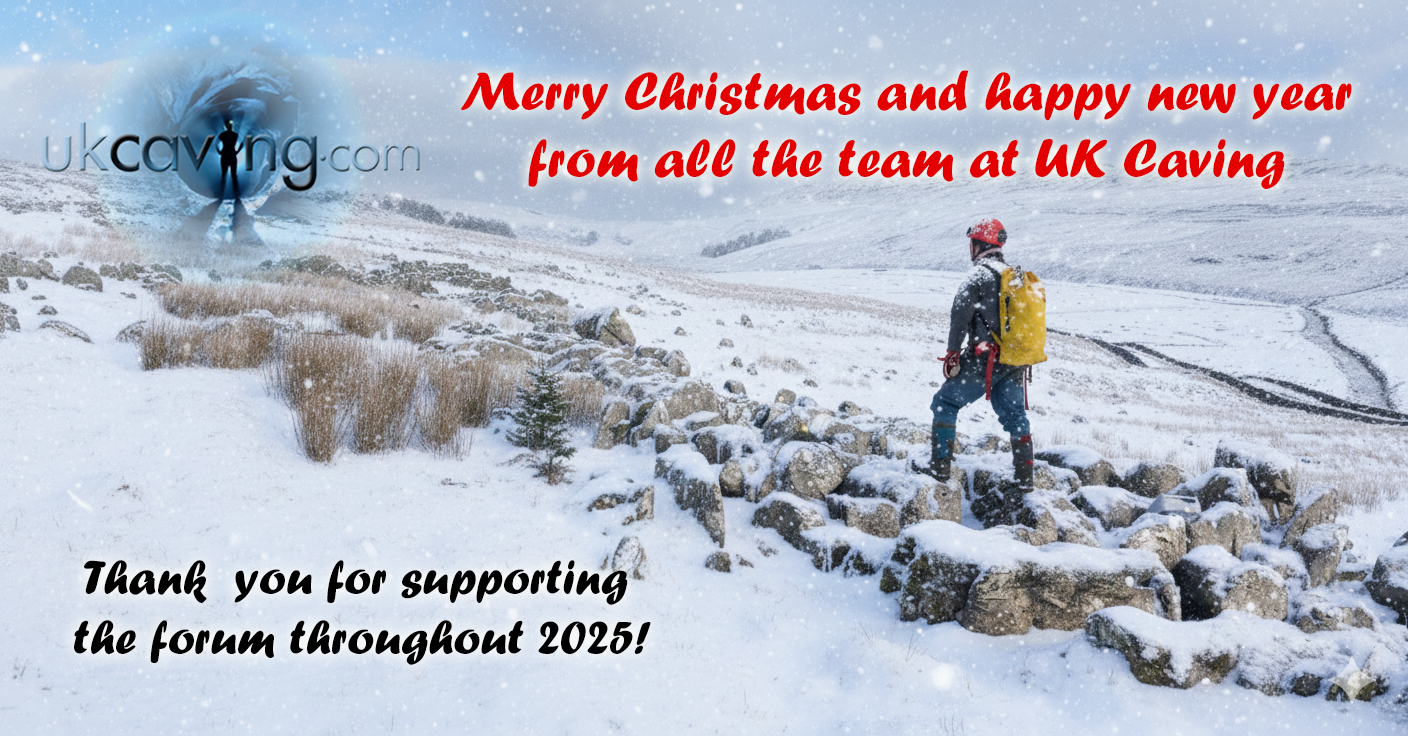Ian Adams
Well-known member
The issue of (extreme) conservation having become topical, I would be interested in views on this very real scenario;
A cave, in North Wales exists.
The entrance is roughly 10 feet wide by 6 feet high but it is filled with glacial sediment in its entirety.
In the 1970?s there was an exploratory dig undertaken which only looked at the material in the sediment at the mouth of the cave (no attempt to gain entry was made). The dig revealed many things including broken formations within the sediment. Some detail was recorded. One of the people involved is a noted published author of caves and mines. Additionally, he is a researcher (and historian?) and he has suggested that this particular cave may well be of significant interest/importance.
The lack of (landowner) permission to dig has meant that the cave has been undisturbed since the 1970?s (and obviously for the time prior to that) and it does not seem likely that permission will be granted any time in the near future.
With regards to conservation;
1) The face of rock that the cave sits in is known to have receded by several hundred metres at least due to natural geological changes over time (before humans could record anything).
2) The existence of broken formations within the glacial sediment suggests that (significant) damage has already occurred to the cave system by natural means.
3) The geological evidence suggests a cave system exists within that may well be substantial.
4) In other nearby caves, evidence has been found of animals using the cave(s) as shelter. In fact, the oldest known recorded human tooth (I think it was a ?human? tooth but am happy to stand corrected) was found in a nearby cave which may well be part of the same system.
The questions then beg themselves (accepting landowner wishes are paramount);
A) Given that ?nature? has already caused (significant) damage, is the need for conservation mitigated?
B) Is the scientific importance of exploration increased because of the (increasing) natural destruction?
C) Is the scientific importance of exploration increased because of the nearby findings of the ancient historical use of such caves?
D) Does conservation trump exploration/science in this instance?
E) What other factors should be considered in this scenario?
Obviously I am aiming the question at our friend in the USA but it would be interesting to get a wider view from people already engaged (or not engaged) in the other similar forum topics.

Ian
A cave, in North Wales exists.
The entrance is roughly 10 feet wide by 6 feet high but it is filled with glacial sediment in its entirety.
In the 1970?s there was an exploratory dig undertaken which only looked at the material in the sediment at the mouth of the cave (no attempt to gain entry was made). The dig revealed many things including broken formations within the sediment. Some detail was recorded. One of the people involved is a noted published author of caves and mines. Additionally, he is a researcher (and historian?) and he has suggested that this particular cave may well be of significant interest/importance.
The lack of (landowner) permission to dig has meant that the cave has been undisturbed since the 1970?s (and obviously for the time prior to that) and it does not seem likely that permission will be granted any time in the near future.
With regards to conservation;
1) The face of rock that the cave sits in is known to have receded by several hundred metres at least due to natural geological changes over time (before humans could record anything).
2) The existence of broken formations within the glacial sediment suggests that (significant) damage has already occurred to the cave system by natural means.
3) The geological evidence suggests a cave system exists within that may well be substantial.
4) In other nearby caves, evidence has been found of animals using the cave(s) as shelter. In fact, the oldest known recorded human tooth (I think it was a ?human? tooth but am happy to stand corrected) was found in a nearby cave which may well be part of the same system.
The questions then beg themselves (accepting landowner wishes are paramount);
A) Given that ?nature? has already caused (significant) damage, is the need for conservation mitigated?
B) Is the scientific importance of exploration increased because of the (increasing) natural destruction?
C) Is the scientific importance of exploration increased because of the nearby findings of the ancient historical use of such caves?
D) Does conservation trump exploration/science in this instance?
E) What other factors should be considered in this scenario?
Obviously I am aiming the question at our friend in the USA but it would be interesting to get a wider view from people already engaged (or not engaged) in the other similar forum topics.
Ian



